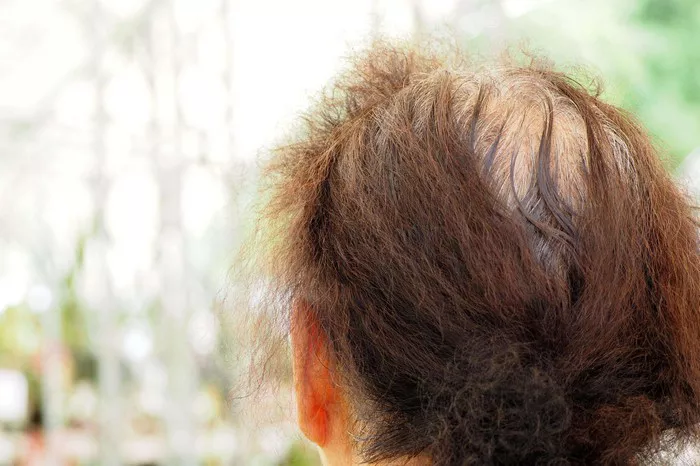In today’s fast-paced world, hair loss is a concern for many individuals. It can result from various factors, including genetics, stress, hormonal imbalances, and medical conditions. One question that has arisen in recent times is whether a brain tumor can cause hair loss. This article explores this intriguing question, delving into the possible connections between brain tumors and hair loss.
Understanding the Basics: Hair Loss and Its Causes
Hair loss, or alopecia, is a common condition characterized by the thinning or loss of hair from the scalp or other body parts. It can result from various factors, including genetics, hormonal changes (e.g., male/female pattern baldness), medical conditions (e.g., alopecia areata), medications, stress, and poor nutrition. Hair growth follows a natural cycle of growth (anagen), rest (telogen), and shedding (catagen). Hair loss occurs when this cycle is disrupted, leading to more hairs in the resting or shedding phase. Understanding the underlying cause is crucial for effective treatment, which may include medications, lifestyle changes, or hair restoration procedures like transplantation.
The Brain Tumor Connection
Now, let’s explore the intriguing question: can a brain tumor cause hair loss? While it’s relatively rare, there are instances where brain tumors have been associated with hair loss. However, it’s crucial to note that not all brain tumors lead to hair loss, and the relationship between the two is complex.
1. Understanding Brain Tumors
Brain tumors are abnormal growths of cells within the brain. They can be benign (non-cancerous) or malignant (cancerous). The location, size, and type of brain tumor can influence whether hair loss occurs as a symptom.
2. Pressure on Blood Vessels
One way in which a brain tumor may indirectly lead to hair loss is by exerting pressure on blood vessels in the scalp. Increased intracranial pressure can affect blood circulation, potentially disrupting the hair follicles’ nutrient supply.
3. Hormonal Disturbances
Certain brain tumors, particularly those near the pituitary gland, can disrupt hormone production. Hormonal imbalances can, in turn, lead to hair loss. It’s essential to consult a medical professional for a thorough evaluation if hair loss is accompanied by other neurological symptoms.
The Diagnostic Process
If you suspect that your hair loss might be related to a brain tumor, it’s crucial to undergo a comprehensive diagnostic process. Here are the key steps involved:
1. Medical Consultation
Begin by consulting a healthcare professional, such as a neurologist or an oncologist, who can assess your symptoms and medical history.
2. Imaging Studies
In cases where a brain tumor is suspected, imaging studies like MRI (Magnetic Resonance Imaging) and CT (Computed Tomography) scans can provide detailed insights into brain abnormalities.
3. Hormone Testing
If hormonal imbalances are suspected, hormone level testing may be recommended to identify any irregularities.
4. Biopsy
In cases where a brain tumor is detected, a biopsy may be necessary to determine its nature, whether benign or malignant.
Seeking Treatment and Support
If a brain tumor is confirmed as the cause of your hair loss, it’s essential to seek appropriate medical treatment and support. The treatment approach will depend on the tumor’s type, size, and location.
1. Surgery
For tumors that are accessible, surgical removal may be an option. This procedure aims to remove the tumor while preserving brain function.
2. Radiation Therapy and Chemotherapy
In cases where surgery is not feasible or for malignant tumors, radiation therapy and chemotherapy may be recommended to target and shrink the tumor.
3. Supportive Care
Throughout the treatment journey, emotional and psychological support is crucial. Consider joining support groups or seeking counseling to cope with the challenges that may arise.
See Also: Navigating Hair Loss: Choosing the Best Alpecin Shampoo
In conclusion
While it is rare for a brain tumor to directly cause hair loss, there are indirect mechanisms through which it can contribute to this distressing symptom. If you suspect that your hair loss may be related to a brain tumor, it is imperative to consult a healthcare professional promptly. Early diagnosis and appropriate treatment are essential for addressing both the underlying medical condition and any associated hair loss. Remember, maintaining open communication with your healthcare team is key to managing this complex situation effectively.


